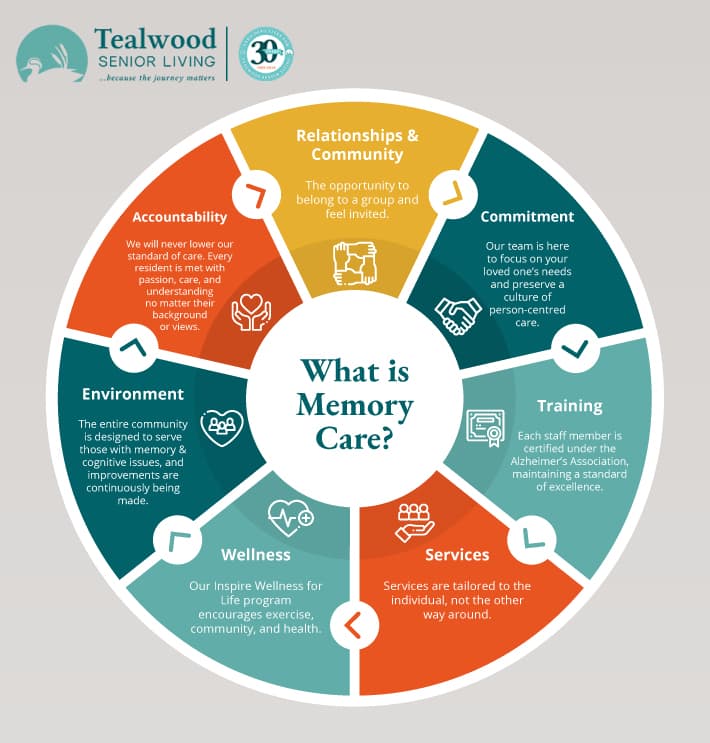Thoughtful Alzheimer's Look after Your Liked Ones
The intricacy of Alzheimer's illness requires a specific approach to care that highlights concern and understanding. Acknowledging the emotional and emotional demands of people influenced by this condition is extremely important in boosting their high quality of life. Caretakers play a vital role in developing an environment that fosters self-respect and respect, using approaches that advertise psychological link and lower anxiety. As we discover the different strategies and techniques that can transform caregiving right into a much more compassionate experience, it ends up being clear that the trip is as much about the caretaker as it is about the individual with Alzheimer's.
Understanding Alzheimer's Condition
Alzheimer's condition is a dynamic neurodegenerative disorder that mainly influences cognitive feature, resulting in memory loss, impaired thinking, and adjustments in behavior. It is one of the most usual type of dementia, accounting for 60-80% of all instances. The condition usually materializes in people aged 65 and older, although early-onset Alzheimer's can happen in younger individuals.
The pathophysiology of Alzheimer's entails the build-up of amyloid plaques and neurofibrillary tangles in the mind, resulting in neuronal degeneration and synaptic loss. These changes interrupt interaction in between brain cells, gradually impairing cognitive abilities and everyday performance. Early signs may include trouble keeping in mind current events and difficulties in analytic, which can rise to disorientation and problem with language.
As the condition developments, people may show profound memory shortages, confusion concerning time and location, and trouble identifying liked ones. Behavior modifications, consisting of frustration, withdrawal, and anxiety, may also occur. Comprehending the scientific development of Alzheimer's is crucial for caregivers and doctor, as it notifies reliable administration strategies and treatments tailored to the demands of individuals impacted by this incapacitating condition.
The Relevance of Compassionate Care
Thoughtful care is essential in sustaining individuals with Alzheimer's condition, as it considerably boosts their lifestyle. This approach prioritizes the emotional and psychological well-being of people, fostering an atmosphere that promotes self-respect, understanding, and regard. Individuals with Alzheimer's often experience stress and anxiety, frustration, and complication, which can be reduced via caring interactions.
Empathy in caregiving not just assists in recognizing the unique requirements of each individual however likewise strengthens the caregiver-patient connection. When caregivers approach their roles with empathy, they produce a secure area where patients really feel valued and comprehended, which can decrease behavior difficulties connected with the condition. This helpful atmosphere encourages far better communication and engagement, assisting in a more effective action to the care provided.
Furthermore, compassionate care extends beyond the patient; it additionally includes support for households. Caretakers who exercise compassion are more furnished to resolve the psychological worry faced by liked ones, giving reassurance and advice with a tough journey. Ultimately, the significance of caring treatment hinges on its capability to transform the caregiving experience, resulting in enhanced outcomes for both individuals with Alzheimer's and their families.
Practical Caregiving Strategies
Efficient caregiving for individuals with Alzheimer's condition calls for sensible strategies that deal with the unique challenges posed by the problem. One of the leading strategies is establishing a constant everyday regimen, which can supply framework and knowledge, decreasing stress and anxiety for both the person and the caretaker. Caretakers ought to likewise streamline tasks by breaking them down right into smaller, workable actions, therefore enhancing the individual's sense of accomplishment and lessening frustration.
Interaction is an additional vital element; caretakers need to utilize clear, straightforward language and maintain eye contact to promote understanding. Using aesthetic hints, such as images or labels, can even more help understanding and navigation in the environment.
Safety is critical. Adapting the go to website space to remove threats-- such as installing or safeguarding rugs grab bars-- can assist protect against mishaps. Furthermore, caretakers must urge freedom by allowing individuals to participate in acquainted tasks, which can boost self-worth and promote well-being.
Psychological Support Strategies
Emotional health is a vital part of take care of individuals with Alzheimer's disease, as it straight influences their lifestyle. Alzheimers Care Charlotte. Supplying emotional support strategies can considerably boost their day-to-day experiences and cultivate a sense of protection and belonging
One effective approach is active listening, which entails providing full interest to the person, acknowledging their sensations, and responding with compassion. This method helps the person really feel valued and understood, reducing feelings of isolation or stress. Additionally, making use of recognition treatment can be beneficial; instead of fixing mistaken beliefs, caretakers can verify the person's experiences and emotions, promoting a calming environment.
Involving in reminiscence treatment is one more powerful technique, allowing individuals to share feelings, tales, and memories connected with their past. This not only boosts cognitive function however likewise enhances emotional links. Including acquainted songs or art can additionally evoke positive feelings and trigger joyous communications.
In addition, making sure routine physical touch, such as holding hands or gentle hugs, can supply comfort and peace of mind, reinforcing psychological bonds. These methods, when regularly applied, can develop a nurturing environment that supports the psychological health of individuals with my site Alzheimer's, improving their general well-being.
Creating a Helpful Atmosphere

First of all, think about the physical design of the home. Clutter-free areas, familiar furniture arrangements, and distinct pathways can lower confusion and advertise wheelchair. Making use of link comforting shades and ample illumination can better boost the environment, making it a lot more welcoming and less intimidating.
Secondly, uniformity is critical. Keeping a foreseeable day-to-day regimen helps people with Alzheimer's feel more safe. Familiar tasks, regular meal times, and scheduled social interactions can considerably lower anxiety and disorientation.
Additionally, sensory components play an essential function. Incorporating acquainted aromas, songs, and tactile items can evoke positive memories and stimulate engagement. Customizing the area with valued pictures and meaningful things can likewise foster a feeling of identity.
Verdict
Thoughtful Alzheimer's treatment substantially boosts the quality of life for individuals affected by this modern condition. Ultimately, this strategy not just provides important convenience and support but also empowers individuals to navigate the complexities of Alzheimer's with self-respect and grace.
As we discover the various methods and methods that can transform caregiving right into an extra caring experience, it ends up being clear that the journey is as much about the caretaker as it is about the private with Alzheimer's.

Thoughtful treatment is crucial in sustaining people with Alzheimer's illness, as it significantly improves their high quality of life - Alzheimers Care Charlotte. Eventually, the relevance of thoughtful care exists in its capacity to transform the caregiving experience, leading to boosted outcomes for both people with Alzheimer's and their family members
Thoughtful Alzheimer's treatment considerably boosts the quality of life for people affected by this progressive disease.